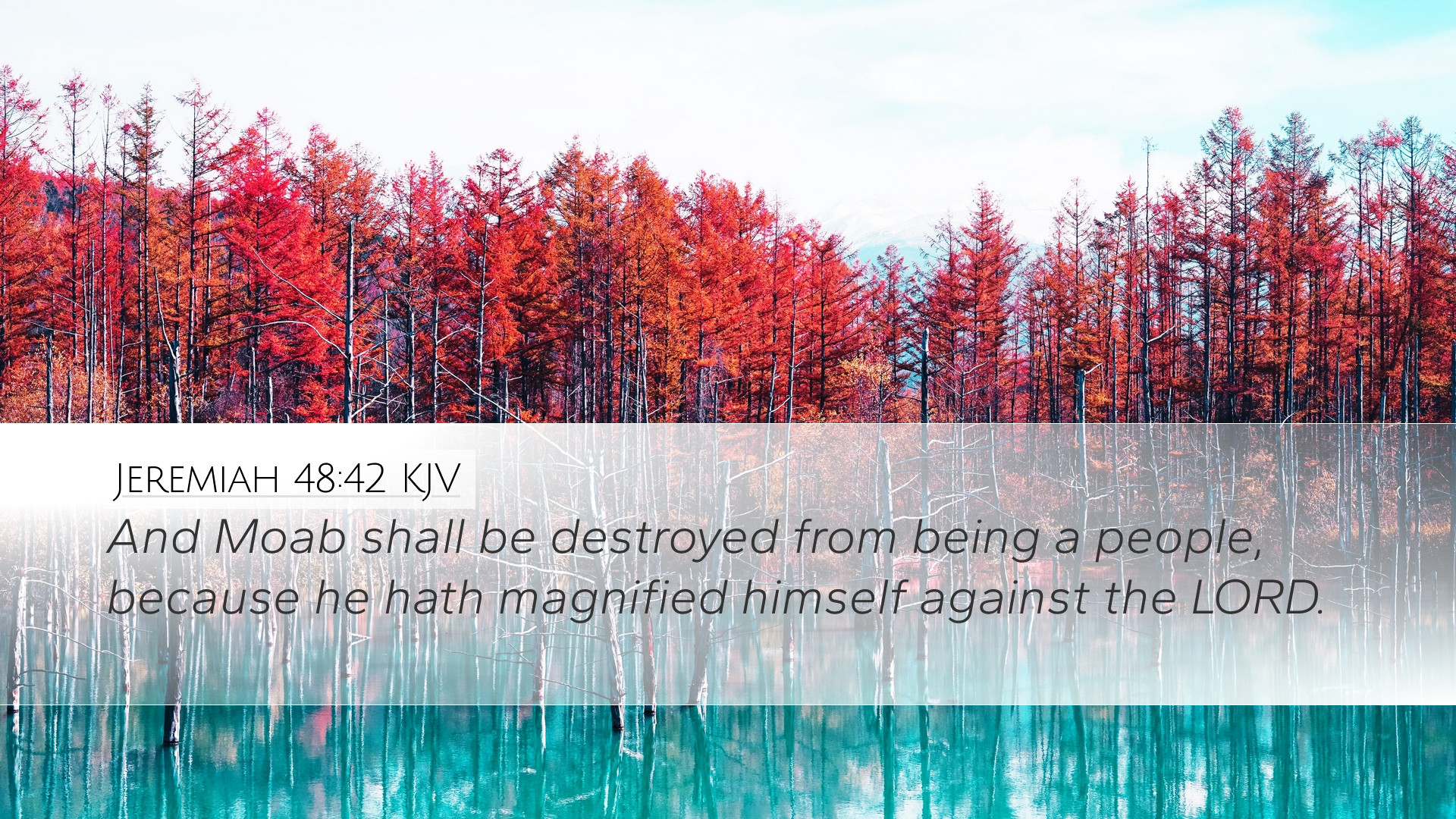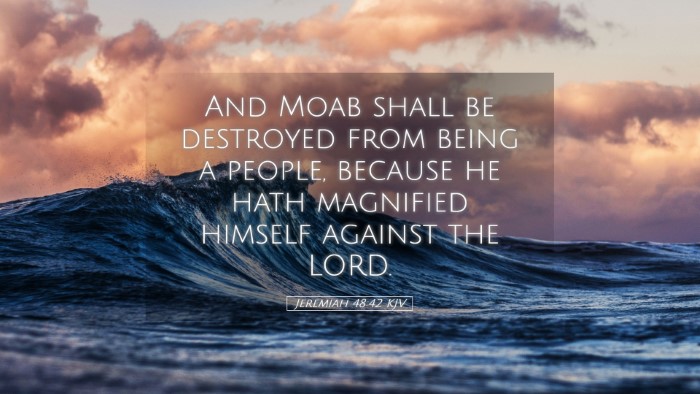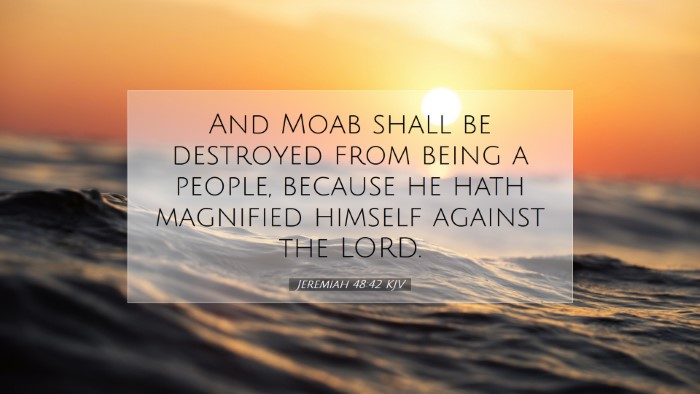Commentary on Jeremiah 48:42
Jeremiah 48:42 states: "And Moab shall be destroyed from being a people, because he hath magnified himself against the LORD." This verse serves as a proclamation of judgment against the nation of Moab, illustrating the consequences of pride and rebellion against God. Below is a synthesis of insights from various public domain commentaries that provide a richer understanding of its implications.
Contextual Background
Moab, located on the eastern shore of the Dead Sea, was historically a significant rival and foe to Israel. Throughout biblical history, the Moabites often engaged in conflict with the Israelites, leading to a fraught relationship characterized by animosity and rivalry.
- Historical Context: The Moabites descended from Moab, the son of Lot and the grandson of Abraham. Despite shared ancestry with the Israelites, their rivalry exacerbated tensions, particularly during the times of the Judges and the monarchy.
- Prophetic Context: Throughout Jeremiah’s prophecies, he highlights not just the fate of Israel but also the coming judgment on surrounding nations, including Moab. This verse encapsulates a broader theme of divine retribution against nations that oppose the Lord’s will.
Thematic Insights
The primary themes emerging from Jeremiah 48:42 focus on pride, divine judgment, and the sovereignty of God over nations.
Pride and Rebellion
“Because he hath magnified himself against the LORD.” This phrase encapsulates the essence of Moab's sin: pride. Commentators highlight that Moab's arrogance and self-exaltation led to a disregard for God's authority, which is a recurring theme in biblical narratives.
- Albert Barnes: Explains that the pride of Moab is illustrated through its reliance on false gods and military strength, believing itself invulnerable and indifferent to the will of God.
- Matthew Henry: Notes that pride is a precursor to fall; the strong will not remain unbroken when they stand against the Almighty. Moab's attempts to elevate itself led to its inevitable downfall.
- Adam Clarke: Emphasizes the futility of human pride against divine authority, affirming that nations or individuals who elevate themselves above God will face severe consequences.
Divine Judgment
The declaration that "Moab shall be destroyed from being a people" speaks to God’s judgment against sin and rebellion. The destruction foretold is comprehensive, indicating God's removal of Moab as a significant entity among nations.
- Matthew Henry: Describes the severity of the sentence as a direct outcome of glorifying oneself at the expense of God's honor. The divine judgment will eradicate the identity of Moab as a people.
- Albert Barnes: Comments on God's sovereignty, noting that the divine judgment is inevitable for those who persist in sin and oppose God. The extinction of Moab serves as a warning to others.
- Adam Clarke: Reflects on the historical fulfillments of these prophecies, arguing that many once-thriving nations have felt the effects of prideful rebellion against God, leading ultimately to their disappearance.
Applications for Today
From a pastoral perspective, this passage serves as a poignant reminder of the consequences of pride both individually and collectively.
- Personal Reflection: Believers are urged to reflect on areas in their lives where pride may manifest and lead them away from God's purposes.
- Church Leadership: Shepherds and church leaders must be vigilant against pride within their ministries, ensuring that they remain humble servants of God's will.
- Societal Implications: This verse can serve as a prophetic warning to nations today, calling leaders and citizens to humility before God, lest they face similar consequences.
Conclusion
Jeremiah 48:42 encapsulates a vital truth about the nature of God’s judgment and the peril of human pride. Scholars, pastors, and students of the Word are encouraged to engage with this text, seeking to uncover deeper truths about divine sovereignty, humility, and the fate of nations.
In the light of Scripture, it is unequivocally clear that recognition of God's authority and submission to His will are paramount for both individual and communal well-being. The fate of Moab serves as a cautionary tale for all who would dare to elevate themselves above the counsel and authority of the Lord.


